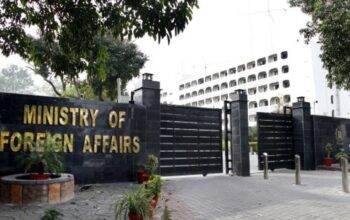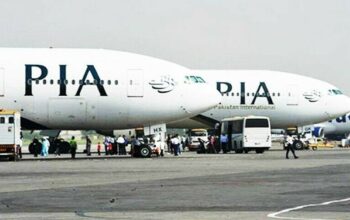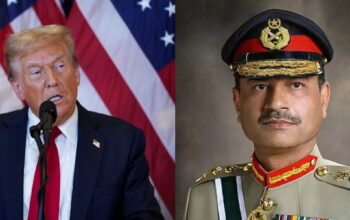By Staff Reporter
KARACHI: The central bank raised its benchmark interest rate by 150 basis points to 13.75 percent, the second hike in less than two months, to tame runaway inflation as policy makers try to win a bailout from the International Monetary Fund without meeting the politically tough condition of increasing fuel prices.
But the monetary policy committee’s outlook assumes engagement with the IMF, as well as reversal of fuel and electricity subsidies in the year starting July 1, the State Bank of Pakistan (SBP) said in a statement.
“Under these assumptions, headline inflation is likely to increase temporarily and may remain elevated throughout the next fiscal year.”
High global commodity prices and rising imports have stoked Asia’s second fastest inflation. Consumer prices rose over 13 percent in April and the rupee plunged past 200 a dollar last week for the first time ever amid a dollar shortage. Pakistan’s foreign exchange reserves of $10.2 billion cover less than two months of imports.
The key interest rates have been hiked by 400 bps in less than two months.
“This action, together with much needed fiscal consolidation, should help moderate demand to a more sustainable pace while keeping inflation expectations anchored and containing risks to external stability,” the central bank said.
Policy makers are in talks with the IMF over conditions for accessing the $3 billion payout pending from a loan program. Finance Minister Miftah Ismail said the country cannot afford to raise fuel costs.
“I will sign the agreement with the IMF in next two days and won’t come back without doing it,” Ismail told reporters in Karachi.
The IMF is likely to conclude ongoing talks over a 7th review in Doha. If talks succeed, Pakistan will get a $900 million tranche of the $6 billion rescue package agreed in 2019.
The SBP said the country’s current-account deficit will narrow to about 3 percent of GDP after the government imposed import curbs.
“This narrowing of the current account deficit together with continued IMF support will ensure that Pakistan’s external financing needs during the next financial year are more than fully met, with an almost equal share coming from rollovers by bilateral official creditors, new lending from multilateral creditors, and a combination of bond issuances, FDI and portfolio inflows,” it added.
Unhappy businesses, however, are feeling heat from rising interest rates.
“When general fuel subsidy fails to curb imports, State Bank of Pakistan jacks up policy rate by 150 bps even though it is not a solution to global commodity led inflation. Who suffers? Government, formal sector borrowers and its customers. Who benefits? Smugglers?” policy advocacy platform Pakistan Business Council said on Twitter
But the central bank emphasized the urgency of fiscal consolidation to complement the monetary tightening, adding: “This would help alleviate pressures on inflation, market rates and the external account.”
It said government spending in the fiscal year starting in July was expected to be expansionary, led by higher subsidies, grants and provincial development expenditures.
“At 0.7 percent of GDP, the primary deficit during the first three quarters of the year compares unfavourably with the primary surplus of 0.8 percent of GDP during the same period last year,” it said.
Continued IMF support will ensure that Pakistan’s external financing needs during fiscal 2023 are more than fully met as well, it said.
As a result, the bank said excessive pressure on the Pakistani rupee should ease and the bank’s foreign reserves resume their upward trajectory during the course of the next fiscal year.
Copyright © 2021 Independent Pakistan | All rights reserved




